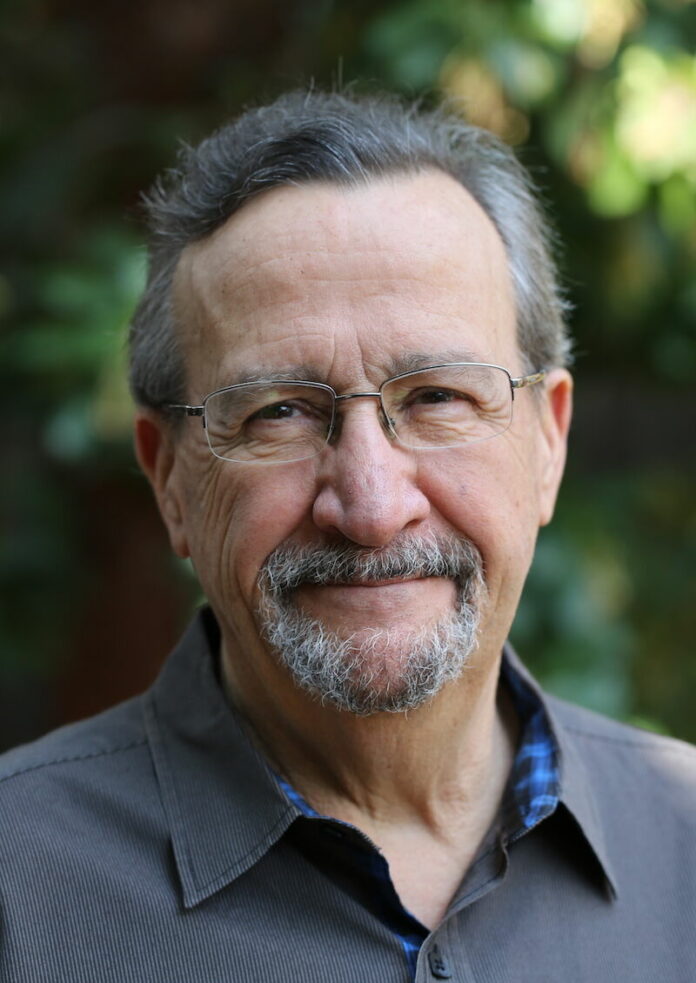The United States of America is a land of immigrants. In addition to those who we commonly perceive as an immigrant — someone who was born in another country — anyone whose ancestors came from Asia, Europe, South America, the Middle East, Africa (if you go back far enough, that includes all of us), or elsewhere, is the descendant of an immigrant.
You can call yourself a pioneer or a settler if that makes you feel special or entitled, but at some point, one of your forebears was a newcomer, an unfamiliar face who spoke in an unfamiliar language or dialect.
My Portuguese and Irish grandparents were born in some of the poorest places in Europe, came here hungry and determined and did OK for themselves. Eventually, they owned modest homes and small businesses, but first they toiled — on the docks in Oakland, on farms in Missouri — and they got their thin sliver of the American pie.
By the time I was born, my people were no longer unwelcome foreigners — they were white. In our public schools, we celebrated the “melting pot” and “the land of opportunity” and were taught that anyone could succeed here, as long as you worked hard and caught a break once in a while. The books didn’t state it, but the mythology only applied if you were white.
In the early days of this nation — as we broke free from England — being white meant that you were, well … English; your people came from England, along with a bit of Germany, a little Dutch, and other places the British monarchy had genetically invaded or absorbed.
A caste system — influenced by how rich or poor each nation was in the 18th Century — had an impact on colonization. Spain, which once ruled the seas, had fallen on hard times and their people were dismissed as fit only to colonize the parts of the New World below the Rio Grande.
In the 19th and 20th centuries, as the American Experiment shifted from a dependence on slave labor to a dependence on cheap labor, the definition of white became elastic, and began to include formerly shunned people from Southern and Eastern Europe, but still excluded everyone else.
It began to fracture in the 1960s, and the Civil Rights Movement resulted in decent laws but poor enforcement, as our noble intentions were tarnished by the reality of our flaws.
Our nation so often falls short of our dreams, and we’re supposed to appreciate that we keep dreaming, but I have a responsibility to examine my role in it, to wonder if it’s part of my indoctrination as a white man. Do I forgive the sins of my heritage by noting that my grandparents started poor and by believing that “As Americans, we mean well?”
Essayists, pundits and authors refer to slavery as “America’s Original Sin.” I find that to be inarguable. The way white Americans have treated our African family — made them slaves, kept them down, seen them as “other” — is linked to how we have treated everyone we don’t see as white.
Eurocentric hypocrisy is alive and well in the U.S.A. It’s a sad and abhorrent irony that we drove the First Nations people from their land and did all we could to subjugate them, and now apply a twisted mirror of that ruthless attitude to newcomers who want us to share what we took by force.
I support the Black Lives Matter movement. Black people have suffered from the worst of our sins, and I hope a national reconciliation can transform that centuries-old stain on our hearts. When it does — and it must — everyone of us has to become an antiracist, because good intentions aren’t enough.
Educator/activist Bettina Love says that white privilege is like an ATM card that keeps replenishing itself. She’s right, and it means that even the grandson of people who once didn’t fit the definition of white, now has the power to be a co-conspirator in anti-racism, in anti-homophobia, in anti-misogyny, in anti-anything that diminishes us as a human family.
My privilege allows me — requires me — to speak up when I can, to intervene when I must, in service of a just and equitable future.
Ray Holley is reaching for his wallet. He can be reached at ra*******@***il.com.








